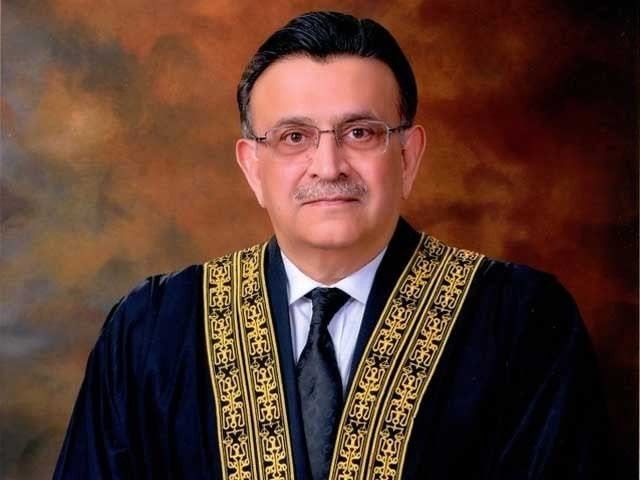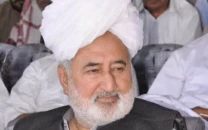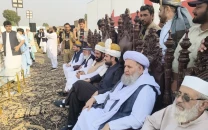SC judge says laws become ineffective when system breaks down
CJ remarks judiciary cannot exercise the power of the executive

Supreme Court Justice Mansoor Ali Shah said on Thursday when a system was broken down, even strict laws would become ineffective, but asked the question, if the apex court was expected to do everything wouldn’t it be an encroachment on the powers of the executive.
Justice Shah sat on a three-member bench, led by Chief Justice Umar Ata Bandial, seized with the hearing of Pakistan Tehreek-e-Insaf (PTI) Chiarman Imran Khan’s petition, challenging the recent amendments to the National Accountability Ordinance (NAO).
During the hearing, Imran’s lawyer, Khawaja Haris continued his arguments. He told the bench that the authority of the National Accountability Bureau (NAB) over illegal income had also been done away with in the amendments. He said that protecting the fundamental rights of the people was the judiciary’s responsibility.
Justice Shah said that there were other laws for accountability of illegal incomes but added that if the system was broken, even stricter laws would not be effective. However, he posed the question whether the judiciary could play a role in case of the failure of the executive.
Haris said that because of the NAB’s lethargy, the Supreme Court conducted investigation into the corruption cases. He reminded that the apex court had ordered the joint investigation team [JIT] to investigate the issue of fake accounts.
Justice Shah asked that everything had to be done by the judiciary, wouldn’t it be an encroachment on the authority of the executive. Haris replied that the court had ordered for legislation on the issue of the appointment of army chief.
Justice Shah further asked would the judiciary run the country if the prime minister was unable to do that, or if someone cast suspicions on the government or claimed that the prime minister was controversial. “These things has to stop somewhere,” he added.
The judge also asked the lawyer whether the judiciary could cross the line of separation of powers in the protection of fundamental rights. However, Chief Justice Bandial said that the judiciary could not encroach upon the authority of the executive.
The chief justice further said that the court could only ask the executive to fulfil his responsibility but it could not exercise the power of the executive. Chief Justice Bandial added that suo motu option had to be used with great care.
Justice Shah said that the Judiciary invalidated many of the administration’s actions in the past. He remarked that since the petitioner was asking for the restoration of deleted clauses of the accountability law, therefore, this situation was different from the past.
The chief justice said that even if the NAO amendments were invalidated for being in conflict with the fundamental rights, how the old law would be restored. Later, the court adjourned the hearing till November 14.



















COMMENTS
Comments are moderated and generally will be posted if they are on-topic and not abusive.
For more information, please see our Comments FAQ